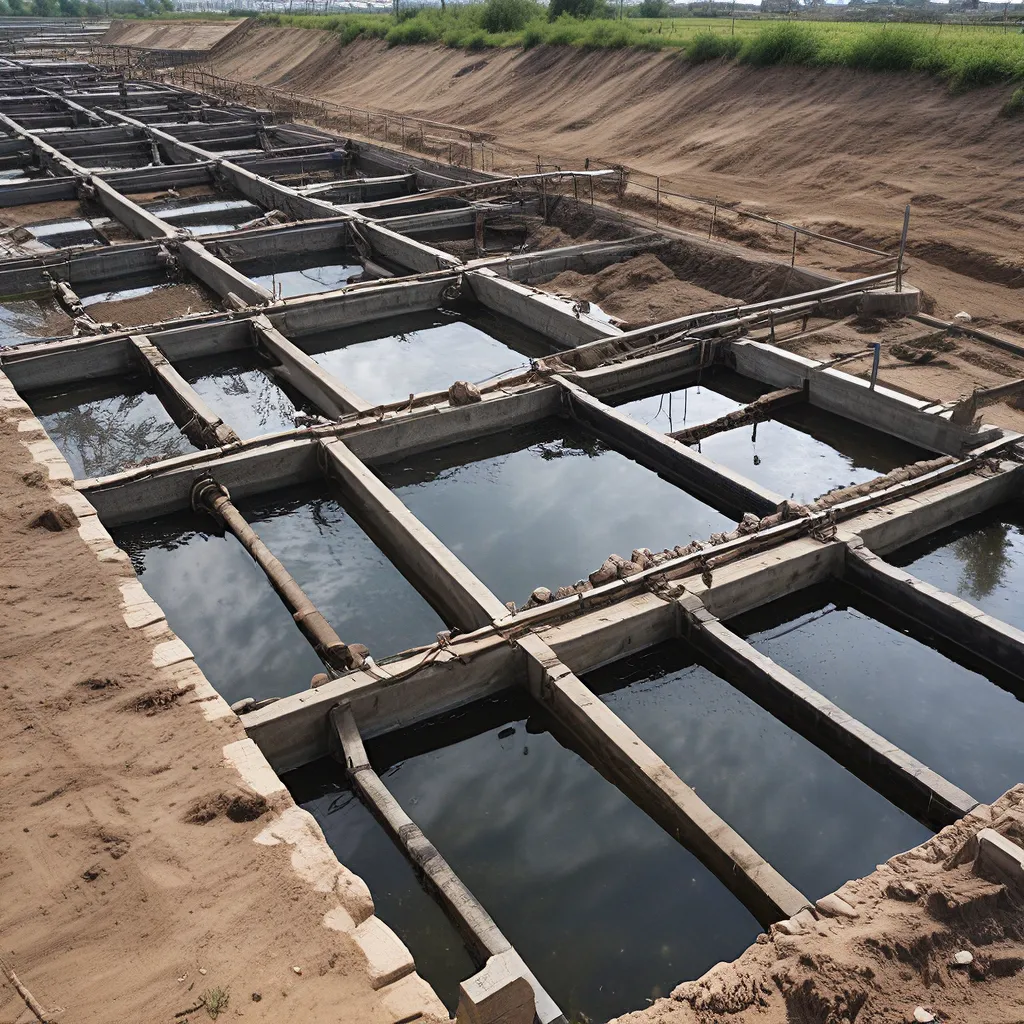
Unlocking the Power of Wastewater Treatment: A Community-Centric Approach
As a responsible citizen, I’ve always been fascinated by the role of wastewater treatment in shaping the well-being of our communities. It’s a subject that often flies under the radar, but its impact on our daily lives is undeniable. Recently, I’ve been exploring the intersection of wastewater treatment and social responsibility, and let me tell you, the insights I’ve uncovered are truly eye-opening.
You see, wastewater treatment isn’t just about managing the flow of used water – it’s about fostering a sense of community, promoting inclusivity, and empowering the people who rely on these essential services. And let me tell you, it’s a story that’s been unfolding right under our noses.
The Whole Community Approach: Engaging Diverse Stakeholders
One of the key principles I’ve discovered in my research is the ‘whole community’ approach to wastewater treatment. This concept, championed by organizations like FEMA, emphasizes the importance of engaging a diverse range of stakeholders – from local residents to industry leaders, policymakers, and community organizations.
You see, when it comes to wastewater management, it’s not just about the engineers and technicians behind the scenes. It’s about understanding the unique needs and perspectives of the entire community. After all, the decisions made in this realm can have a profound impact on the lives of everyday people, from the quality of their water to the sustainability of their neighborhoods.
And that’s where the magic happens. By embracing the ‘whole community’ approach, wastewater treatment providers can tap into a wealth of local knowledge, cultural insights, and innovative solutions. It’s about collaboration, not just top-down mandates. It’s about empowering the very people who rely on these services, and making them active participants in the process.
Fostering Inclusivity: Breaking Down Barriers
But you know what’s really exciting? The way this ‘whole community’ approach is transforming the landscape of wastewater treatment. It’s not just about technical efficiency anymore – it’s about social impact.
Take, for example, the story of a wastewater treatment plant in a low-income neighborhood that faced persistent issues with odor and infrastructure. Instead of simply imposing a solution, the plant’s management team engaged the community. They held town hall meetings, listened to residents’ concerns, and even incorporated their feedback into the design of the facility’s upgrades.
The result? A more inclusive and responsive wastewater treatment system that not only addressed the technical challenges but also fostered a sense of community ownership. Residents felt heard, empowered, and invested in the success of the project. It was a true testament to the power of breaking down barriers and embracing diversity.
And you know what’s even more inspiring? This approach isn’t just a one-off success story. Across the country, wastewater treatment providers are rethinking their strategies, moving away from the traditional top-down model and towards a more collaborative, community-centric approach.
Bridging the Gap: Wastewater Treatment and Social Impact
But the story doesn’t end there. As I delved deeper into this topic, I discovered that the social impact of wastewater treatment goes far beyond just community engagement. It’s about addressing larger societal challenges and promoting sustainable development.
Take, for instance, the role of wastewater treatment in environmental justice. By ensuring that underserved communities have access to clean, equitable water resources, these essential services can help bridge the gap between the haves and the have-nots. It’s about empowering marginalized populations and uplifting entire neighborhoods.
And the benefits don’t stop there. Effective wastewater management can also contribute to economic development, public health, and climate resilience. When communities have reliable, sustainable water infrastructure, it paves the way for job creation, improved sanitation, and reduced environmental impact.
It’s a interconnected web of social, economic, and environmental factors, all intricately woven together by the humble yet powerful world of wastewater treatment. And the more I learn, the more I’m convinced that this holistic, community-centric approach is the key to unlocking the true potential of these essential services.
The Road Ahead: Embracing Innovation and Collaboration
As I reflect on my journey of discovery, I can’t help but feel a sense of optimism and excitement about the future of wastewater treatment. The industry is evolving, embracing new technologies, and rethinking its role within the broader social landscape.
Take, for example, the innovative work being done by companies like Kyndryl, which are leveraging data analytics and digital solutions to improve the efficiency and sustainability of wastewater infrastructure. Or the community-driven initiatives championed by brands like Lululemon, which are using their platforms to raise awareness and foster active participation in environmental stewardship.
The future of wastewater treatment is bright, but it’s also collaborative. It’s about harnessing the collective power of diverse stakeholders, embracing innovation, and championing social responsibility. And as I look ahead, I can’t wait to see how this industry continues to evolve, redefining the way we think about water, community, and our shared responsibility to the planet.
So, if you’re like me and you’re fascinated by the intersection of wastewater treatment and social impact, I encourage you to dive in, explore, and discover the incredible stories and insights that are waiting to be uncovered. Who knows, you might just find yourself inspired to become a catalyst for change in your own community.
After all, when it comes to building a more sustainable, equitable, and inclusive future, we’re all in this together. And wastewater treatment just might be the unsung hero we’ve been searching for all along.